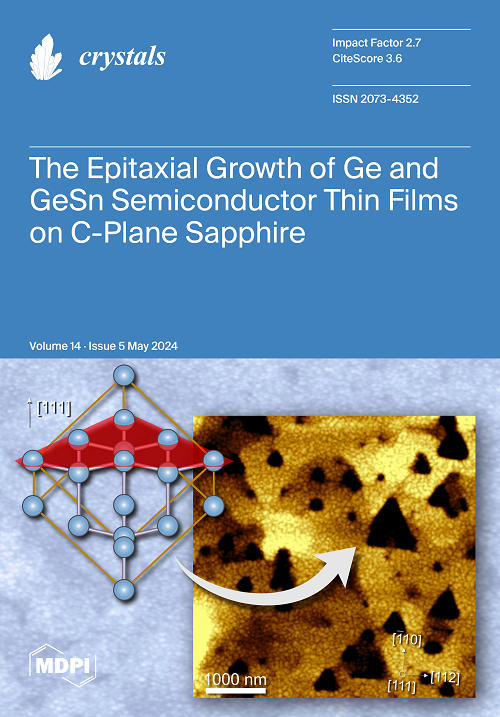Study on the Wear Resistance Performance of the Hot-Rolled BTW1/Q345 Composite Plate under Different Annealing Temperatures
IF 2.4
4区 材料科学
Q2 CRYSTALLOGRAPHY
引用次数: 0
Abstract
Wear-resistant steel/carbon steel composite plates not only have the double performance advantages of high strength and wear resistance but can also reduce energy consumption and production costs. Based on a 50% reduction rate, the wear resistance of the BTW1/Q345 composite was studied at different annealing temperatures, and the dry friction and wear tests of the BTW1/Q345 composite at different annealing temperatures were carried out using RETC MFT-5000. By using the white-light interference three-dimensional surface profiler, scanning electron microscope (SEM), and backscattered electron diffraction (EBSD) technology, we carried out a detailed analysis of the macroscopic and microscopic morphology and wear mechanism of wear traces at different annealing temperatures. The effects of the annealing process on the thickness and composition of the wear layer were studied, and the causes of wear failure were analyzed based on the results of scanning electron microscopy. It was found that as the annealing temperature gradually increased, the particle size near the scratch of BTW1 in the wear-resistant layer of the composite plate became smaller. On this basis, the effects of different annealing temperatures on the friction and wear characteristics of the composite plate were further studied. At the annealing temperature of 860 ° C, the wear resistance of the material was the best.不同退火温度下热轧 BTW1/Q345 复合板材的耐磨性能研究
耐磨钢/碳钢复合板不仅具有高强度和耐磨性的双重性能优势,还能降低能耗和生产成本。在降低 50%的基础上,研究了 BTW1/Q345 复合材料在不同退火温度下的耐磨性,并利用 RETC MFT-5000 对 BTW1/Q345 复合材料在不同退火温度下进行了干摩擦磨损试验。利用白光干涉三维表面轮廓仪、扫描电子显微镜(SEM)和背散射电子衍射(EBSD)技术,对不同退火温度下磨损痕迹的宏观和微观形貌及磨损机理进行了详细分析。研究了退火过程对磨损层厚度和成分的影响,并根据扫描电子显微镜的结果分析了磨损失效的原因。研究发现,随着退火温度的逐渐升高,复合板耐磨层中 BTW1 划痕附近的颗粒尺寸变小。在此基础上,进一步研究了不同退火温度对复合板摩擦磨损特性的影响。退火温度为 860 ° C 时,材料的耐磨性最好。
本文章由计算机程序翻译,如有差异,请以英文原文为准。
求助全文
约1分钟内获得全文
求助全文
来源期刊

Crystals
CRYSTALLOGRAPHYMATERIALS SCIENCE, MULTIDIS-MATERIALS SCIENCE, MULTIDISCIPLINARY
CiteScore
4.20
自引率
11.10%
发文量
1527
审稿时长
16.12 days
期刊介绍:
Crystals (ISSN 2073-4352) is an open access journal that covers all aspects of crystalline material research. Crystals can act as a reference, and as a publication resource, to the community. It publishes reviews, regular research articles, and short communications. Our aim is to encourage scientists to publish their experimental and theoretical results in as much detail as possible. Therefore, there is no restriction on article length. Full experimental details must be provided to enable the results to be reproduced. Crystals provides a forum for the advancement of our understanding of the nucleation, growth, processing, and characterization of crystalline materials. Their mechanical, chemical, electronic, magnetic, and optical properties, and their diverse applications, are all considered to be of importance.
 求助内容:
求助内容: 应助结果提醒方式:
应助结果提醒方式:


